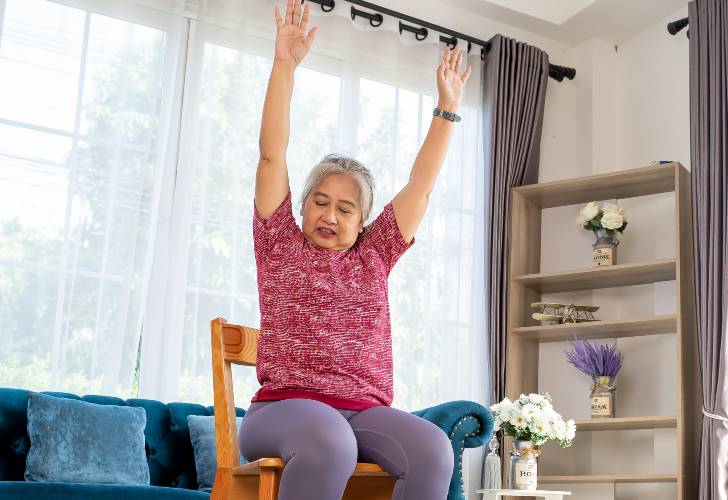
Do your muscles need more flexibility? Stretching is the answer
Stretching was always seen as necessary to warm up the muscles and prepare them for activity, but it is a discipline that can bring many benefits.
Interview with Vanessa Marroquin of East Los Angeles Women’s Center.
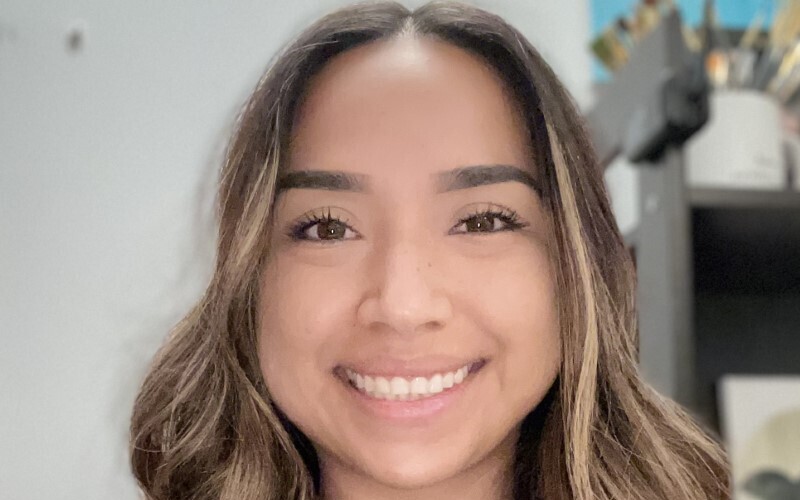
What is your role at the East Los Angeles Women’s Center?
Specifically, my responsibility is to educate and certify community members to become advocates of domestic violence and sexual assault because it is a California certificate. So that is how you’re able to practice being an advocate and practice the client confidentiality that comes with it. There’s a penal code in place that gives the survivor the right to an emotional person of their choosing and to have an advocate of any rape crisis center be present for any other exams or interviews. It’s just really about that emotional support not necessarily telling them what to do but that emotional support of letting them know what their options are and what they can do. A lot of our clients don’t have legal status so that’s their main concern, especially when they have green cards, or their partner has a green card. It gets really tricky for them because they don’t want to report but then they do. So that’s an area where we have underreporting. So, our responsibility is to just let them know their options. Whether it’s legal options or just saying we have these services for you if you don’t want to go the legal route. Self-care, therapy classes, parenting resources, just anything to provide them with that education that they need to start gaining their empowerment back and even just practice what is having a safe relationship which can hopefully trickle down to the children and other generations.
How big of a problem is domestic violence in the Boyle Heights/East Los Angeles community?
It is definitely a huge problem within this community, specifically Boyle Heights/East LA/El Sereno this whole area. It’s really because of the normalization of domestic violence and sexual assault. Just this morning I received a call from a lady who has been in a relationship for three years. And she said, “I don’t know what to do. I really thought this was normal; being hit or being yelled at is part of a relationship. But now it’s turned physical and that just doesn’t feel right to me”. And she did disclose that she grew up in a domestic violence home and so it’s normal for women and men to just take it. You don’t say anything, you keep it quiet. So, what I have realized in a lot of the research that we do within the community is that they just don’t have a safe space to talk about domestic violence.
When they do call law enforcement, unfortunately, law enforcement turns them away or they say “oh it’s just a fight get over it” and that’s when domestic violence really starts circulating and being normalized because we’re telling our community members it was just a fight, leave it, let’s see what happens the next day.
What work is being done in the community in terms of prevention, aid, and containment?
We do have a promotor group that goes out into the community and raises awareness on domestic violence and sexual assault. They’re out there and spreading the word and just planting the seed of what is a healthy relationship. Through their work, they get a lot of disclosures within the community, and when we ask if there’s a report, about 80% of them are not reported.
It’s just a continual cycle of domestic violence and sexual assault. Right now, my volunteers specifically respond to the hotline calls, and they go out to either San Gabriel Medical Center, Whittier PIH, or to LAC USC to provide emotional support and let them know of the resources that are available to them. Whether it’s the Victims of Crime, the Victims Bureau, the services that we have here, or legal services within the community, we pass that around and let them know what we have and bring awareness.
What is the average age range of people seeking help?
30 to 40. What I’ve come to realize as I’m answering hotline calls and I’m sitting in meetings and we’re talking about our clients is a lot of people start disclosing their domestic violence and sexual assault—whether it happened a year ago, ten years ago, or as a child — during their thirties is when it really starts to develop and they start understanding “I went through that, I was abused” whether it was sexually or mentally or physically, it really starts coming about.
We specifically provide services for survivors of sexual assault 12 and older. For domestic violence, it’s 13 and up. Anything below that we refer them to VIP which is the Violence Intervention Program. It’s a foundation with LAC USC and they’re right across the street.
If a victim is experiencing domestic violence and they have children how is that taken into consideration? Is there a difference in how that’s handled? Are any steps taken to keep them safe?
It really depends on the situation, so if they’re calling into the hotline or even if they’re existing clients we always want to know if they do have children because we want to do the proper safety planning and let them know how to safety plan with their kids.
Whether it’s “hey kids, if dads going to hit me do not get involved” because then something can happen to the child or letting the child know about safe zones for them, whether it’s a school, an administrator, or whether it’s a family, letting them know about the safety plan. Anyone who is in a domestic violence situation, we just try to help them and whoever they have. Sometimes we do get callers who have children and we do have a shelter. We have limited space for that, but we do make sure we have space for some families. It doesn’t matter if they’re by themselves or with children, it’s just making sure that we give a safety plan to that specific person.
What is the follow-up process like for each person that seeks help?
Anyone that’s experiencing domestic violence, sexual assault, human trafficking, can either walk in or call our hotline. The very first step is filling out a fact sheet with very basic information. They don’t really have to disclose much if they don’t want to as far as the assault or the violence that’s occurring at home. We then refer them to our data specialist who works closely with our clinical coordinator and within 5 to 7 business days that client has already been assigned to a therapist, followed up with their assigned therapist or caseworker, and already scheduled an intake so they can start their process of receiving services.
Of the cases that seek help, how many end up making a complaint in court against the abuser?
The numbers are really really low. We do have a specialist who goes to court with individuals, but there is always that self-doubt of the survivor of “if I go through with this there is way more repercussions than the good that comes out of it”. They’re getting revictimized. The way that the judges ask questions, the way the attorneys ask questions, the way that they are questioned by the other attorney. They’re trying to get down to the root of it, but in reality, what’s really happening is that they’re revictimizing them. So, a lot of the clients would rather just not go through with it and that’s one of the reasons for the low reporting. It really just depends. We have some people that are willing to report and then some like the callers that are like “absolutely not, I’d rather flee the state and leave everything that I have than go through the system.”
Are there any other problems that can arise in a case of domestic violence that other people wouldn’t really know about?
The mandated reporting. A lot of our survivors go to hospitals because they have been sexually assaulted or experienced domestic violence, or they’re calling hotlines that are not confidential. And so, what is going on is they’re calling these hotlines or they’re going to hospitals or even to schools and everybody across the board are mandated reporters. So before listening to the survivor’s story, they say “my patient just disclosed domestic violence, I have to report it” and most of the time you’re actually putting that survivor in danger.
People are getting released within 12 hours and they end up back at home. It’s really tricky when they are trying to seek support or some type of guidance and don’t even know about our confidential hotline. It’s putting them at risk because a mandated reporter automatically thinks “domestic violence or sexual assault, I have to call this in”. This is why our hotline is confidential for that very reason. To allow our survivors that safe space of calling and saying “this is what’s going on, what do I do about this?” versus they go to a doctor or nurse and they’re just being cut off. That’s definitely one of the problems that I see and especially here where there are a lot of schools and hospitals and a clinic that everybody goes to and all of these are mandated reporters.
What is the “day after” like for a person seeking help?
It really depends. I think the day after, a lot of them it’s a relief that someone listened to them and knowing that there are services out there specifically for what they’re going through and knowing that they have the option of taking care of themselves mentally, physically, and emotionally, and proceed the legal way.
Is there a support process in place for people to regain and rebuild their social ties?
Yes, and that’s when the center really plays a big role because we do have the one-on-one therapy, we have the support groups, and once they gain their support group then they become a family of their own, and it becomes that cycle of empowerment. Then they become promotoras or volunteers. I make it a point to tell my advocates, even though you’re community members, you are a survivor somehow someway turned advocate, so who better to know exactly what people are going through, than that person? This center is really full circle. They come in, see the services, gain their empowerment, and now they’re the ones providing the services for someone that’s going through it.
Are a lot of the advocates and volunteers survivors?
They’re survivors and previous clients of the center as well, so that’s pretty much our pool. I don’t really have to recruit because they just come naturally, but that’s pretty much my volunteer pool. Community members, survivors of their own, whether they disclosed or not, and most of them were clients of the center and now are ready to give back and be able to connect with someone and have them understand “I’m here, I get it, I was in your position once”.
Did the pandemic aggravate the domestic violence situation?
Absolutely 10 thousand percent. I answer the hotline and from March when lockdown came into almost the end of it was nonstop calls. The lockdown revictimized a lot of the survivors, even though they weren’t in the relationship anymore, it revictimized them because the lockdown reminded them of their abusive relationship, of being told what to do and what not to do. Victims in their homes were being isolated so because of Covid their abusive partners would say “well if you go to your mom’s house, you’re gonna get her sick” just blaming them. So, it definitely just went up and human trafficking went up by 300 percent. It was pretty bad. I will never forget my first call when everything was on lockdown. This lady called the hotline and her partner saw it as a way of “I got you now, I finally have you alone and isolated”. Thankfully Project Safe Haven with the county came out and so we were able to place her within an hour.
How do you handle it mentally to deal with all of this?
I don’t know. To be completely honest, the first couple of months I would sleep it off but that wasn’t healthy. I just make sure that I have boundaries as much as I can. On Tuesdays and Thursdays, I purposely am not on call, and my best friend and I go hiking from 6am to 9am so I can be away from the phone and not think of it and just give myself time because that vicarious trauma really kicks in.
It’s really hard to take all of this in sometimes because I just think of how many other people are out there and then it makes me sad because then sometimes, we won’t get a call on the hotline and I’ll get excited but then I think that just means one less person didn’t reach out to disclose what happened and then I can’t connect them. It’s a fight. It’s a fight within myself to keep myself sane. I will say I no longer watch crazy movies. I never did, but then when I started this work I was like absolutely not. Anything very wholesome I am all about that. That’s pretty much some of the ways and then just doing side things to really keep my mind of off it.
How does your referral process work?
We don’t have any direct referrals outside because we need that specific survivor to call us directly. We cannot call them because I don’t know what type of danger I can put them in. I don’t want to lose a survivor, but we really can’t force them to seek help.

Stretching was always seen as necessary to warm up the muscles and prepare them for activity, but it is a discipline that can bring many benefits.
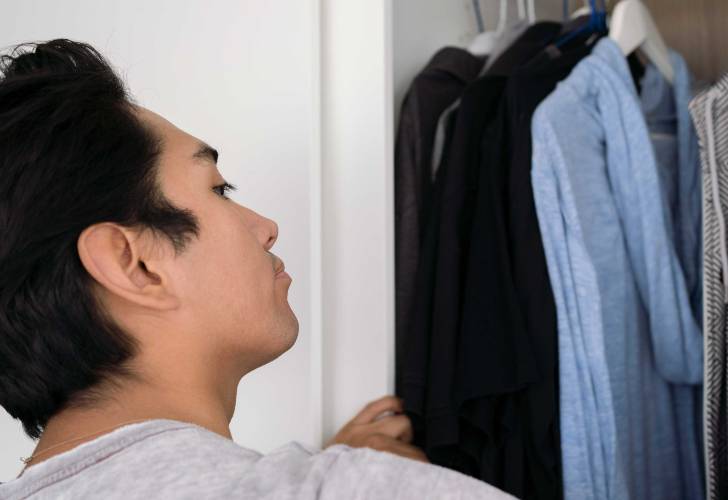
It is a difficult task for us to face, but once we do it, it translates into many benefits
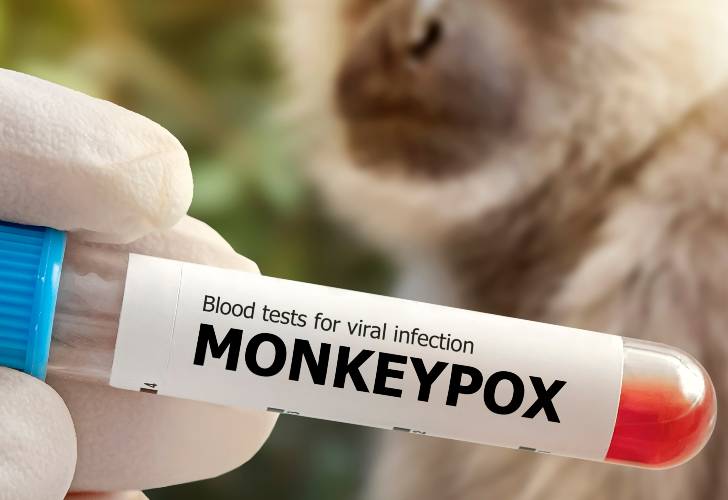
Monkeypox usually affects people who are in contact with skin lesions or fluids from other people or derived fromanimals.
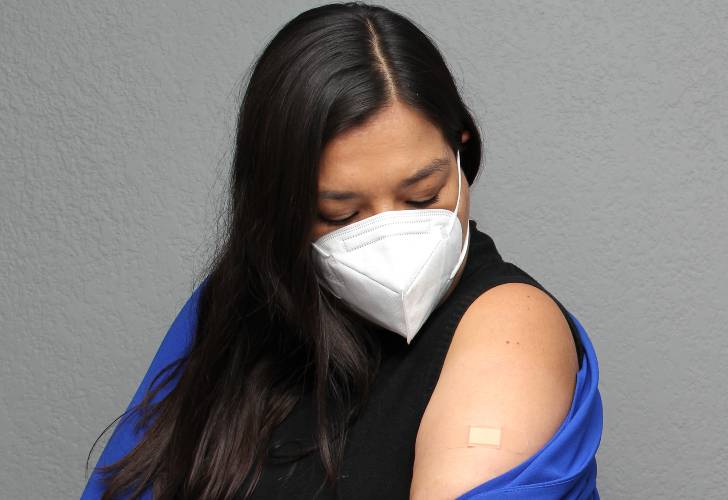
August is National Immunization Awareness Month, an opportunity to recognize the importance of vaccination and to check if everyone in your family is updated with the immunization schedule.